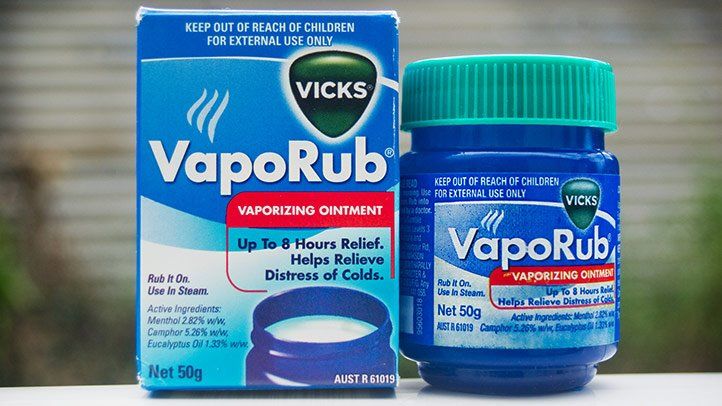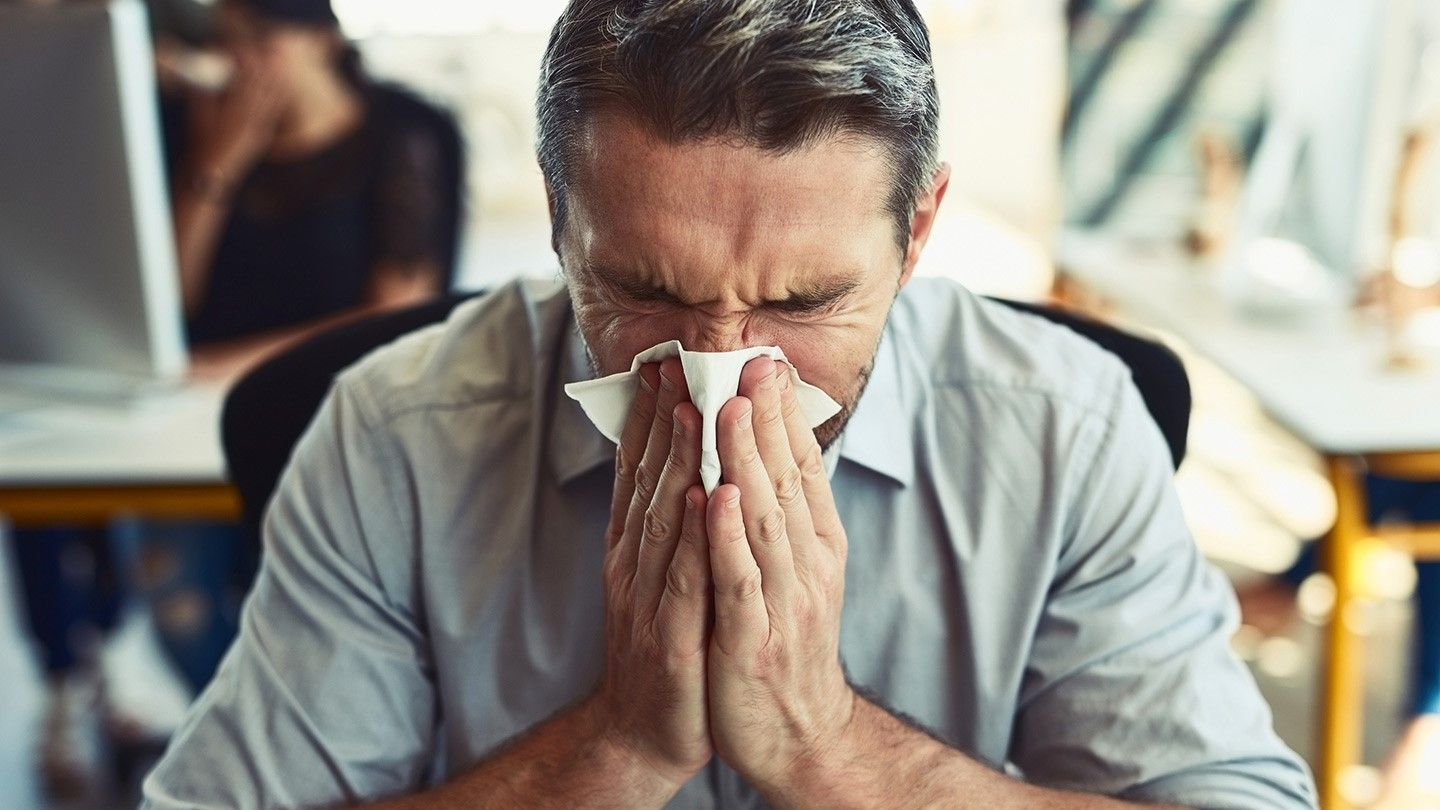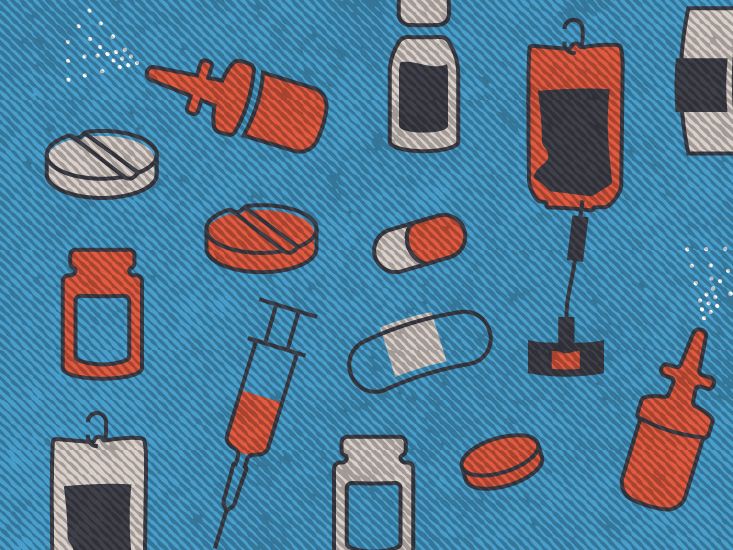Understanding Morning Congestion and Stuffy Noses
Waking up with a stuffed up or congested nose can be annoying and uncomfortable. This congestion is often caused by mucus buildup in the nasal passages and sinuses overnight. As we sleep, mucus production slows down. Gravity also pulls mucus to the back of the throat. This combination can lead to a feeling of nasal congestion first thing in the morning.
A stuffy nose upon waking is very common. Causes can include:
- Allergies - Allergic rhinitis causes inflammation and swelling in the nasal passages.
- Sinusitis - Infection or swelling of the sinus cavities blocks drainage.
- Weather changes - Dry indoor air or drops in temperature can irritate nasal passages.
- Pregnancy - Hormonal changes can increase mucus production.
- Medications - Some drugs like blood pressure medications can contribute to stuffiness.
- Anatomical factors - A deviated septum or swollen turbinates can block airflow.
Most cases of morning nasal congestion are not serious. But chronic or severe congestion should be evaluated by a doctor. Treatment options for relief include natural remedies and medications.
7 Natural Remedies to Relieve Congestion
Before turning to medications, try some home remedies to open up nasal passages and provide stuffy nose relief:
1. Stay Hydrated
Drinking plenty of fluids thinns out mucus secretions.Aim for the recommended daily intake of around 2 liters of water for women and 3 liters for men. Drink water, herbal tea, broth, and juices to meet your daily needs.
2. Try a Saline Rinse
Saline nasal rinses can wash out thick mucus and provide immediate, temporary relief. Use a Neti pot or nasal irrigation bottle to rinse each nostril with a saltwater solution. Use distilled, sterilized, or previously boiled water to make your own rinse at home.
3. Take a Steam Bath
Inhaling warm, moist air loosens mucus and eases congestion. Try taking a steamy shower or use a humidifier. For quick relief, put your face over a bowl of hot water and breathe in the steam for a few minutes.
4. Use a Nasal Strip
Adhesive nasal strips can help open up your nasal passages by lifting the sides of the nose. This allows more airflow and mucus drainage. Wear them at night or when congested during the day for temporary stuffy nose relief.
5. Try Over-the-Counter Medications
Decongestant sprays and pills constrict blood vessels in the nasal passages, reducing swelling. Use medicated nasal sprays containing oxymetazoline or phenylephrine sparingly for fast relief. Oral decongestants like pseudoephedrine also provide temporary stuffy nose relief.
6. Use a Neti Pot
A neti pot is used to flush out nasal passages with a saline solution. This can remove mucus and irritants, providing immediate congestion relief. Buy a specially designed pot, add premixed solution, tilt head, and gently pour into each nostril.
7. Apply a Warm Compress
A warm compress can help open up nasal passages and provide relief from facial pressure. Soak a clean washcloth in warm water. Wring it out and place it over your nose, cheeks, forehead and eyes for several minutes as needed.
When to See a Doctor
A stuffed up nose is generally harmless. But see your doctor if congestion:
- Lasts longer than 10-14 days
- Occurs frequently with other symptoms like headaches or cough
- Is accompanied by facial pain or pressure
- Interferes with sleep or breathing
- Occurs after an injury or nosebleed
Chronic nasal stuffiness may require examination and treatment. Your doctor can check for nasal polyps, structural abnormalities, sinusitis and other medical conditions. Treatment may involve nasal sprays, antibiotics, allergy management and surgery.
Preventing Morning Congestion
Making lifestyle changes and treating underlying causes can help prevent and reduce instances of waking up congested. Try these measures to keep nasal passages clear:
Use a Humidifier
Running a humidifier at night adds moisture to dry indoor air. This can limit irritation and stuffiness from breathing dry air while you sleep.
Avoid Triggers
Reduce exposure to allergens, smoke, pollution and other irritants. Use HEPA filters, wash bedding regularly, avoid dust buildup and limit time outdoors when pollen counts are high.
Elevate Your Head
Use extra pillows to keep your head elevated at night to allow for better mucus drainage.
Take Allergy Medications
If allergies are the cause, take medications like antihistamines to manage symptoms and limit congestion.
Treat Sinus Infections
Take antibiotics or use nasal steroid sprays as prescribed for bacterial or viral sinus infections preventing drainage and stuffiness.
Avoid Irritants Before Bed
Don't smoke or drink alcohol close to bedtime as they can increase mucus production and stuffiness overnight.
When to See an Allergist
See an allergist if morning congestion is chronic and you suspect allergies. Allergy testing can identify specific triggers. Immunotherapy like allergy shots can help desensitize your immune response for lasting relief.
Treatments for Chronic Nasal Congestion
For chronic or severe chronic nasal congestion, your doctor may recommend:
- Nasal corticosteroids - Prescription nasal spray steroids like Flonase and Rhinocort reduce inflammation.
- Allergy shots - Immunotherapy injections expose you to small allergen doses to reduce responses.
- Oral steroids - Short courses of prednisone and other oral steroids reduce swelling.
- Other prescription drugs - Nasal anticholinergics, antihistamines, and leukotriene inhibitors may be tried.
- Nasal rinses - Regular saline rinses can provide long-term relief by keeping passages moist.
- Surgery - Septoplasty, turbinate reduction or polyp removal may be an option if structural issues exist.
When to See an ENT Doctor
See an ear, nose and throat specialist if you have:
- Nasal obstruction with difficulty breathing through your nose
- Facial pain or pressure with congestion
- Recurrent sinus infections
- Nasal drainage that persists despite treatment
- Suspected structural blockages or nasal polyps
An ENT can examine the nose with an endoscope to identify any anatomical factors contributing to chronic congestion. Surgery like septoplasty may be warranted to correct issues like a deviated septum for relief.
Relieving Stuffy Noses Without Medication
Before turning to medication, try these natural remedies to find stuffy nose relief:
- Steam inhalation - Breathe in warm steam from a bowl, shower or humidifier.
- Neti pot rinse - Use a saline solution to flush out nasal passages.
- Warm compress - Apply a warm wet washcloth to the nose, cheeks and forehead.
- Peppermint oil - Menthol can help open up nasal airways and improve airflow.
- Chicken soup - Hot broth provides hydration and steam to loosen mucus.
- Apple cider vinegar - Contains potassium which may thin mucus when taken orally.
- Ginger tea - Ginger's anti-inflammatory effects can help reduce swelling and stuffiness.
- Spicy foods - The heat may stimulate mucus flow and drainage.
When to Consider Surgery
If chronic congestion persists despite aggressive treatment, surgery may be an option. ENT surgeons can correct structural issues including:
- Deviated septum - Crooked cartilage divide between nostrils.
- Enlarged turbinates - Swollen tissues lining nasal passages.
- Nasal polyps - Noncancerous growths due to swelling.
- Adenoids - Enlarged tissue behind the nasal cavity.
Surgery like septoplasty, turbinate reduction or nasal polypectomy can remove obstructions and improve airflow and breathing.
Managing Allergy-Related Congestion
Allergies are a very common cause of chronic nasal stuffiness for many people. To reduce allergy-related congestion:
- Avoid triggers like dust mites, pet dander, pollen
- Close windows and use air conditioning when pollen counts are high
- Use HEPA air filters in the home
- Wash bedding weekly in hot water to reduce dust mites
- Vacuum and dust regularly
- Take antihistamines like loratadine to control symptoms
- Use nasal corticosteroid sprays like Flonase
- Get allergy shots for long term reduction in sensitivity
When to See a Doctor for Congestion
See your doctor if stuffy nose:
- Lasts longer than 10-14 days
- Occurs frequently or persistently
- Is accompanied by facial pain/pressure
- Interferes with sleep or breathing
- Gets worse or doesn't improve with home treatment
Persistent congestion may require examination to identify the cause. Chronic nasal obstruction can also lead to snoring and sleep apnea in some cases.
Congestion Prevention Tips
You may not be able to avoid congestion completely, but you can take steps to prevent and minimize it:
- Stay hydrated - Drink plenty of fluids to keep mucus thin.
- Use a humidifier - Add moisture to dry air at home and work.
- Irrigate with saline - Use a Neti pot or nasal rinse regularly.
- Breathable bedding - Avoid overly warm blankets that trap heat.
- Wash hands often - Avoid transferring viruses and bacteria into nasal passages.
- Avoid smoking and secondhand smoke.
- Limit use of NSAIDs and blood pressure medications that can cause stuffiness as a side effect.
Treating Sinusitis Causing Congestion
Inflammation or infection of the sinus cavities behind the nose often leads to associated nasal congestion. Treatment options for sinusitis include:
- Antibiotics for bacterial sinus infections
- Nasal corticosteroids sprays like Flonase to reduce inflammation
- Analgesics to relieve facial pain and pressure symptoms
- Nasal saline irrigation to flush out mucus and promote drainage
- Oral or nasal decongestants for temporary relief
- Antihistamines if allergies are contributing to swelling
With treatment, acute sinusitis usually clears within 7-10 days. Seek prompt medical attention if symptoms persist beyond this timeframe.
Linking Congestion and Sleep Apnea
Chronic nasal stuffiness and obstruction can potentially lead to snoring and obstructive sleep apnea in some individuals. When the nose is congested, breathing through the mouth occurs. This allows the tongue and tissues of the throat to relax and vibrate during sleep. Nasal congestion also exacerbates apnea by limiting airflow during breathing pauses.
Treating the underlying nasal obstruction is key. This may involve medications, allergy management, nasal strips, nasal dilators, and surgery. Treatment of congestion may help reduce snoring and prevent the development of sleep apnea in those at risk.
Congestion Remedies for Pregnancy
Hormonal changes during pregnancy often lead to nasal congestion and stuffiness. Try these safe congestion remedies while pregnant:
- Humidity with a cool mist vaporizer
- Nasal saline rinses
- Neti pot irrigation
- Nasal strips
- Elevating the head at night
- Drinking plenty of fluids
- Tylenol for associated facial pain
- Chamomile, peppermint or eucalyptus herbal teas
FAQs
What causes a stuffed up nose when waking up?
A stuffed nose upon waking is commonly caused by mucus buildup and swelling in the nasal passages overnight. Allergies, weather changes, sinus infections, anatomical factors, pregnancy, and medications can all contribute to morning congestion.
How can I unclog my nose instantly?
Some quick ways to relieve a stuffed nose include using a saline spray or rinse, taking a steamy shower, applying a warm compress, using a decongestant, or taking an over-the-counter oral decongestant medication.
When should you see a doctor for nasal congestion?
See a doctor if congestion lasts longer than 10-14 days, occurs frequently, causes facial pain/pressure, interferes with sleep or breathing, or gets worse with home treatment. Chronic nasal obstruction may require examination and medical treatment.
What helps clear up a stuffy nose?
Staying hydrated, using a humidifier, doing nasal saline rinses, applying warm compresses, taking OTC decongestants, and getting plenty of rest can all help clear nasal congestion and stuffy noses.
Can allergies cause chronic stuffy nose?
Yes, allergies are a very common cause of chronic nasal congestion for many people. Allergy management including avoidance of triggers and medications like antihistamines and nasal steroid sprays can help prevent and treat allergy-related stuffiness.
Disclaimer: This article is for informational purposes only and does not constitute medical advice. Always consult with a healthcare professional before starting any new treatment regimen.
Related Coverage
Everything you need to know about the science, techniques and benefits of female ejaculation and squirting. Tips for how to achieve this intense orgasmic release....
Compare Dayquil and Alka Seltzer Plus ingredients, forms, uses, side effects and recommendations to determine which OTC cold medicine is better for your symptoms....
Artificial intelligence is radically changing how businesses operate and deliver value to customers in the 2020s, from personalized recommendations to streamlined operations....
Learn about the risks and benefits of using Vicks VapoRub in bathwater. Understand safety concerns over camphor and other ingredients when heated and inhaled....
Onions and honey each offer unique healing and nutritional benefits from colds to wounds and heart health. Learn how this powerful pair can boost your overall wellbeing....
Wondering whether to use Mucinex or DayQuil for cold, flu and cough symptoms? Compare the key differences in active ingredients, forms, symptom relief abilities, safety, and best products....
Learn whether you can take NyQuil 4 hours after Sudafed decongestant based on differences, side effect risks, dosing guidelines and what to do if interactions occur....
Excess phlegm and mucus can be caused by allergies, infections, smoking, GERD, and other issues. A combination of home remedies and medical treatment can provide relief....
Tamiflu side effects include nausea, dizziness, headache, and rare reactions. Get tips to ease symptoms and when to call doctor....
Daytime cold and flu symptoms like sore throat, fever, aches, and fatigue can make it hard to function. Learn how to manage symptoms, treat at home, and know when to see a doctor....






